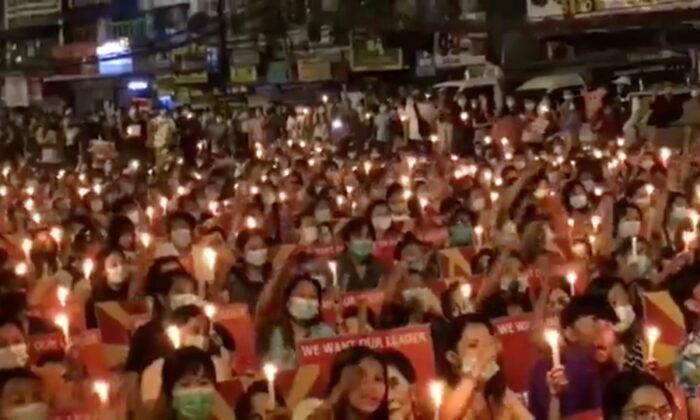Australia has joined an international call for the Burmese military junta to immediately stop its violent suppression of the country on the first anniversary of the military coup.
“The devastating impact on the people of Myanmar is clear,” the statement said. “Over 14 million people are in humanitarian need, the economy is in crisis, democratic gains have been reversed, and conflict is spreading across the country. The military regime bears responsibility for this crisis.
“We reiterate our call on the military regime to immediately end the State of Emergency, allow unhindered humanitarian access, release all arbitrarily detained persons, including foreigners, and swiftly return the country to the democratic process,” it read.
Turnell, who was an advisor to Aung San Suu Kyi, is a highly regarded academic from Sydney’s Macquarie University, and was the director of the Myanmar Development Institute in the capital, Naypyitaw.

“The military will not easily eschew the power they have held on to for decades; the military budget remains completely separate from the national budget, and the civilian arm of government has no say on the military’s spending decisions.”
The joint statement comes as Canada, the UK, and the United States place coordinated economic sanctions on seven individuals and two entities linked to the Burmese military regime. These included Union Attorney General Thida Oo, Supreme Court Chief Justice Tun Tun Oo, and Anti-Corruption Commission Chairman Tin Oo—for their roles in the military regime’s “politically motivated” prosecution of deposed Nobel laureate Aung San Suu Kyi.
The allies also imposed sanctions on K.T. Services and Logistics Co. Ltd., its Chief Executive Jonathan Myo Kyaw Thaung, and the military’s procurement directorate for allegedly providing financial support to the military regime.
The Under Secretary for the U.S. Treasury for Terrorism and Financial Intelligence, Brian E. Nelson, said that the three nations stood in solidarity with the people of Burma who were seeking freedom and democracy.
Meanwhile, U.S. Secretary of State Anthony Blinken said the countries were coordinating these actions to demonstrate the international community’s commitment to the people of Burma.
The Department of Foreign Affairs and Trade did not immediately respond to a request for comment on whether Australia had considered applying its own sanctions.




